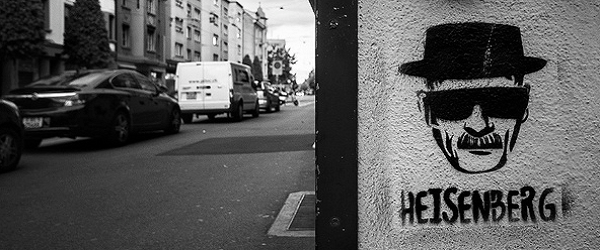Sooner or later, we were going to have to face it. The first Sunday evening without a brand new Breaking Bad is count-the-hours close and all we can do is cope. Like us, you’ve probably been ruminating on cherished moments, favorite scenes and the emotional highs, lows—and super lows—we endured as the addictive series drew to a close. What better way to combat Sunday night blues this weekend than to check out the indie film work of directors Jim McKay, Bronwen Hughes and Rian Johnson, who were at the helm of three of Breaking Bad’s most iconic episodes. These three very different directors who found early success in independent film—Hughes and Johnson are Film Independent Fellows—were part of the talented team Vince Gilligan called upon to help bring his creation to life, one episode at a time. Jim McKay
Jim McKay
Breaking Bad, episode 104: Cancer Man A revelation. A realization. A parking lot encounter that foreshadows things to come. In this HUGELY important episode, Walter White reveals his condition to his family. From this moment, there is no turning back for Walt; breaking bad is the only answer. Walt Jr. struggles with the fear of losing his father while Jesse tries unsuccessfully to rebuild broken ties with his parents. Our Song This coming-of-age story of three best friends trying to find direction in their lives amidst personal and family turmoil was part of the 2000 Sundance Film Festival lineup. Themes of fluctuating morality and the impact of difficult choices run throughout McKay’s film, which boasts a 90% rating on Rotten Tomatoes.
Bronwen Hughes
Bronwen Hughes
Breaking Bad, episode 106: Crazy Handful of Nothin’ Two words: Fulminated. Mercury. One of the most well-known scenes in the series takes place in this episode, in which Walt faces off with the menacing Tuco. For the first time, the science-teacher-turned-meth-manufacturer refers to himself as “Heisenberg” and subsequently catapults his alter ego into legend by blowing up Tuco’s office with… fulminated mercury, exacting revenge for his earlier transgressions against Jesse. Stander Based on the true story of South African police captain Andre Stander, Hughes’ film details the story of a man who completely broke bad, disillusioned by a corrupt governmental system. Stander abruptly abandoned his career as a law enforcement officer, becoming a prolific bank robber and, after a prison escape, an international fugitive. Stander premiered at the Toronto International Film Festival in 2003.
Rian Johnson
Rian Johnson
Breaking Bad, episode 310: Fly Surreality and symbolism: a glimpse into Walt’s haunted psyche. Essentially the entirety of this episode, arguably the most visually striking of the series, consists of Walt desperately attempting to kill a fly that threatens to contaminate the drug lab. Exhausted and affected by sleeping pills, Walt expresses feelings of regret to Jesse, referencing a “perfect” moment at home with his family that has come and gone, never to return. Brick With a drug reference for a title, Johnson’s suburban thriller stars Joseph Gordon-Levitt as a high school student on a mission to solve his girlfriend’s mysterious murder by investigating and manipulating various players in a local drug ring, eventually unearthing a shocking secret. Thanks in part to a dark and riveting narrative, the film won a Special Jury Prize at the 2005 Sundance Film Festival. Not to be overlooked, Johnson also directed Breaking Bad episodes “Fifty-One” and the harrowing “Ozymandias”.



